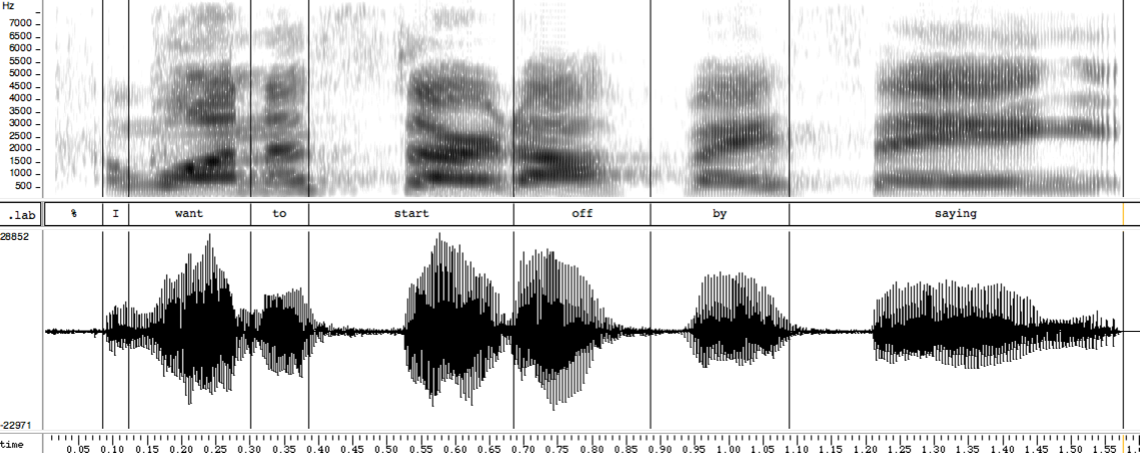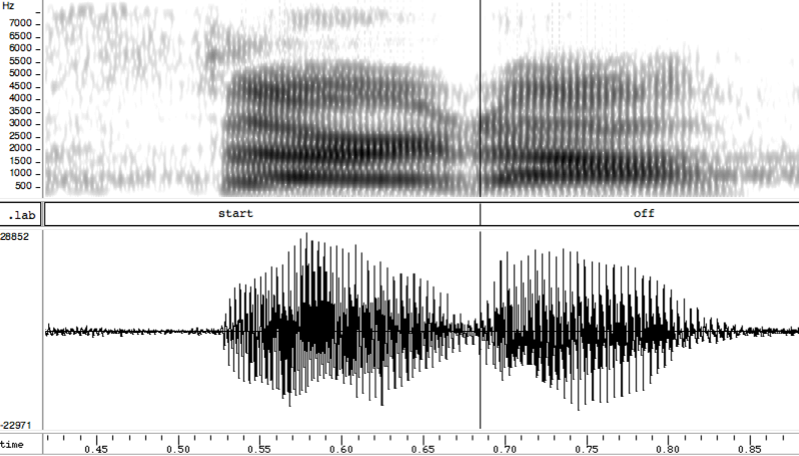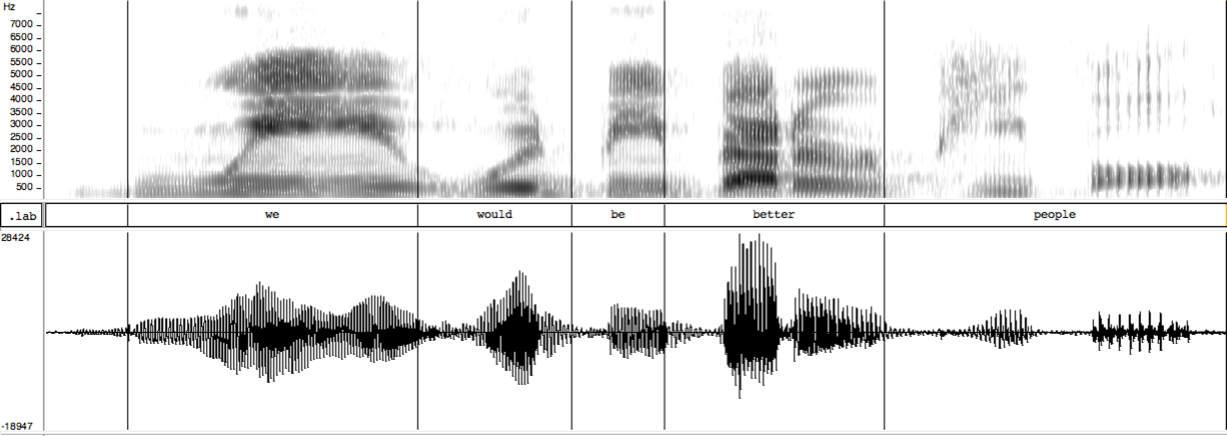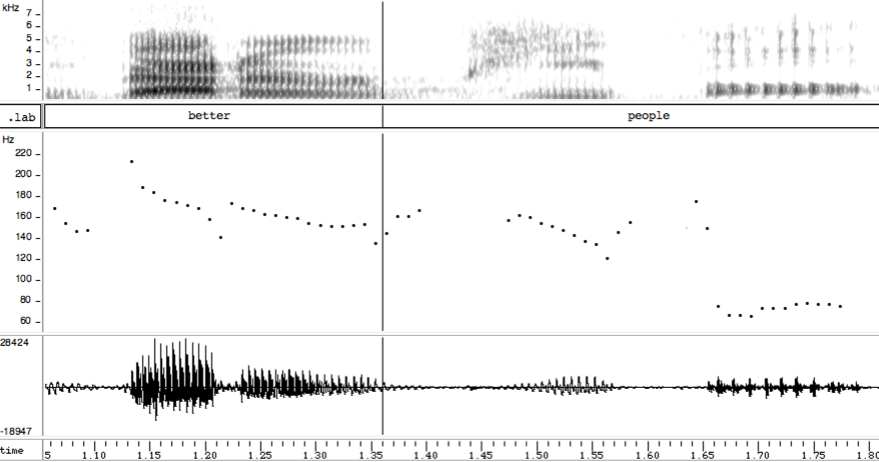New vocal fry culprit
« previous post | next post »
Jen Olenizcak, "Are Spanx Causing Vocal Fry?", Huffington Post 6/17/2014:
New Yorkers are incredibly tense. Articles have been written about our anxiety issues — most adults are incredibly tense.
And the butt tension! I hear so many pinched, throaty Kardashian voices, and when lamenting about the correlation I saw between this body image pulling-it-all-in problem and fry, before a class, a woman suggested the Spanx connection. Now I really don't think one product caused it all, but the act of "pulling-it-all-in" certainly does.
So try it, clench your butt, suck it all in and say hello. Now let it go and say hello. That drop in your voice that probably happened? The clench contributes to shallow breathing and a throaty voice. So loosen up!
Relaxation is good, but this diagnosis seems backwards. "Vocal fry" typically happens when the combination of relaxed vocal cords and lower subglottal pressure causes period-doubling and transition to chaotic oscillation, most often at the end of phrase-final falling intonation. There are voice-quality effects of "clenching" various muscles in and around the larynx and pharynx — and the effects of glottal stricture often include irregular voicing — but the term "vocal fry" is traditionally used not to describe glottalization, but rather to describe the irregular voicing associated with a relatively relaxed glottis. As Wikipedia says,
The vocal fry register[…] is the lowest vocal register and is produced through a loose glottal closure which will permit air to bubble through slowly with a popping or rattling sound of a very low frequency.
But later in the same article, Ms. Olenizcak warns that
We are lazy speakers:
This isn't a surprise. Say this sentence out loud: "Betty Botter bought a bit of bitter batter." Was it hard? Did you change T to D and say, in essence, 'Beddy Bodder'?
Wait, are we too tense or too lazy? I get the feeling that two different topics are being pulled out of the advice bin here, without enough thought about how they go together.
If you did indulge in what linguists call "flapping and voicing" in those six instances of /t/, the reason is not that you're lazy, but that you're an American. Realization of intervocoid non-onset /t/ as a voiced flap or tap [ɾ] is a normal part of (most kinds of) American speech. If you stopped doing it, while retaining the rest of your speech patterns, you'd sound weird. Try it and see.
We can examine Ms. Olenizcak's own (normal American) speech patterns in this Youtube clip. Here's her very first phrase:
Audio clip: Adobe Flash Player (version 9 or above) is required to play this audio clip. Download the latest version here. You also need to have JavaScript enabled in your browser.
Ignoring the normal realization of historical /nt#t/ as a short nasal consonant in "want to", we can focus on the (equally normal) realization of /t/ as a voiced tap in "start off":
Or, a couple of phrases later, her realization as a voiced flap of the medial /t/ in "better":
Audio clip: Adobe Flash Player (version 9 or above) is required to play this audio clip. Download the latest version here. You also need to have JavaScript enabled in your browser.
Note also that in both of the cited phrases, her voice shows period-doubling at the end (to a closing pitch around 65 Hz.), along with a brief exhibition of irregular glottal oscillation. Not yet quite vocal fry, but very close:
This is not because her butt is too tense, but because she's a normal American woman.
Jen Olenizcak suggests that we would all be better off if we took an improv class. I'll go along with that idea, and I'll add that a linguistics class might also be a good idea.
Previous LLOG vocal fry coverage:
"Vocal fry: 'creeping in' or 'still here'?", 12/12/2011
"More on 'vocal fry'", 12/18/2011
"Vocal fry probably doesn't harm your career prospects", 6/7/2014
And just to underline why the term "vocal fry" is traditionally used for irregular glottal pulses, rather than just for a low-enough fundamental frequency for individual pulses to be audible (the "dragging a stick across a picket fence" idea), here's a recording of actual frying sounds:




dw said,
June 18, 2014 @ 7:30 am
Thanks to Ms Olenizcak (and Wikipedia) I now know what "Spanx" is. I was somewhat disappointed.
Stephen C. Carlson said,
June 18, 2014 @ 9:04 am
If you want to hear an American who doesn't flap her t's, presumably due to her residence in England, see this video by (linguist) Dr. Lynne Murphy of the University of Sussex: http://www.numberphile.com/videos/math_maths.html
Pflaumbaum said,
June 18, 2014 @ 9:14 am
Is it completely wrong to call flapping 'lazy'?
Not in the moralistic sense of the article, of course. But is it incorrect to say that the various types of lenition that /t/ undergoes in English dialects – flapping, glottal stops, frication in Southern Irish and Scouse – require less muscular force to articulate that a plosive [t]? Or how about the approximant allophones of /d/ and /g/ in Spanish?
[(myl) Many sound changes — lenition, deletion, assimilation — do involve simplification or reduction of articulatory movements. But I don't think that "laziness" is a very good metaphor for such processes, quite apart from its frequent abuse as a way of denigrating non-standard speakers or Kids Today or whatever. "Efficiency" might be a more appropriate concept.]
Bob Ladd said,
June 18, 2014 @ 9:45 am
@ Stephen C Carlson: In my experience, voicing/flapping of intervocalic /t/ is the first thing that long term North American residents of the UK change if they accommodate at all to their new linguistic environment. This includes non-linguists, i.e. ordinary North American speakers who wouldn't know what "intervocalic" means.
pj said,
June 18, 2014 @ 11:26 am
No one is addressing the real issue here, which is that Betty Botter didn't buy a bit of bitter batter. She bought a bit of bitter butter.
(All [t]s for me – except for the one on 'didn't', which vanishes – though sadly that's just Britishness rather than any lack of indolence.)
Carol Saller said,
June 18, 2014 @ 11:37 am
I thought she bought a bit of _better_ butter.
pj said,
June 18, 2014 @ 11:43 am
She only bought the better butter to make some better batter after the bitter butter made her batter bitter.
(Or, in some versions, on realising that the bitter butter would make her batter bitter if used).
Terry Collmann said,
June 18, 2014 @ 12:00 pm
What is "beurre" in French but "butter" with a glottal stop?
[(myl) Those lazy Gauls left the /t/ entirely out of Latin butyrum (not to speak of deleting the case endings, plus merging the two vowels…)]
MR said,
June 18, 2014 @ 1:16 pm
Most Americans can't not pronounce Betty Botter as "Beddy Bodder" without sounding like they're over-enunciating. I know some older people who pronounced metal the way it's spelled and not like "meddle" and it sounds ridiculous. Conversely, it seems to be a southern Brooklyn thing to pronounce Manhattan as "Minhaddan," which makes my skin crawl.
Daniel Barkalow said,
June 18, 2014 @ 1:58 pm
pj: Even Betty's started to get lazy. Be glad she's not just buying a better Bundt cake.
J. W. Brewer said,
June 18, 2014 @ 3:27 pm
I think she may actually be groping toward a reasonably sound sociolinguistics point, viz. that some of the differences between a formal and informal register in English are phonological and that articulating more precisely in certain (being either less "lazy" or less "efficient") is one way to make your register more formal (and let's assume arguendo that she's right that a more formal register will be more effective in the particular context she's trying to coach people for). Her particular example about /d/ v. /t/ may be bogus, of course (and it may be possible to overshoot into hypercorrection-like territory and thus seem ridiculous rather than professional), but it's not any different at the conceptual level from previous discussions about whether politicians are trying to be faux-folksy in particular contexts (e.g. by "g-dropping") or just "naturally" using the features of a more informal register which they think will be more effective in context. You can presumably fake formality as convincingly as you can fake folksiness (in both cases, by making it appear natural rather than contrived — which may take a lot of work . . .) and self-conscious attention to certain phonological choices might be one way to get there.
J. W. Brewer said,
June 18, 2014 @ 3:52 pm
I expect the association of informality with "laziness" is common in other domains even if equally fact-challenged. E.g., when it comes to male dress, putting on a suit and tie in the morning need not actually be more time-consuming than putting on a much more informal wardrobe, even if the latter might be denigrated as lazy.
hector said,
June 18, 2014 @ 3:56 pm
"I get the feeling that two different topics are being pulled out of the advice bin here, without enough thought about how they go together."
— Never underestimate journalists' needs to (a) fill space (make the article long enough, so if one topic doesn't fill the space, you add another) and (b) meet deadlines (which reduces thoughtful reflection).
[(myl) Jen Olenizcak is not really a journalist, except in the sense that (occasional) HuffPo bloggers are (four posts since August 2013). ]
Rubrick said,
June 18, 2014 @ 4:13 pm
This is not because her butt is too tense, but because she's a normal American woman.
Strong candidate for Best Language Log Sentence Evar.
In related news, "Articles have been written about our anxiety issues" is one of the least-impressive bits of supporting-evidence-marshalling I've run across.
George said,
June 19, 2014 @ 11:11 am
Being Irish, I say something along the lines of "Betchy Botcher bawtch a bitch of bitcher batcher." Does that make me needlessly offensive as well as lazy?